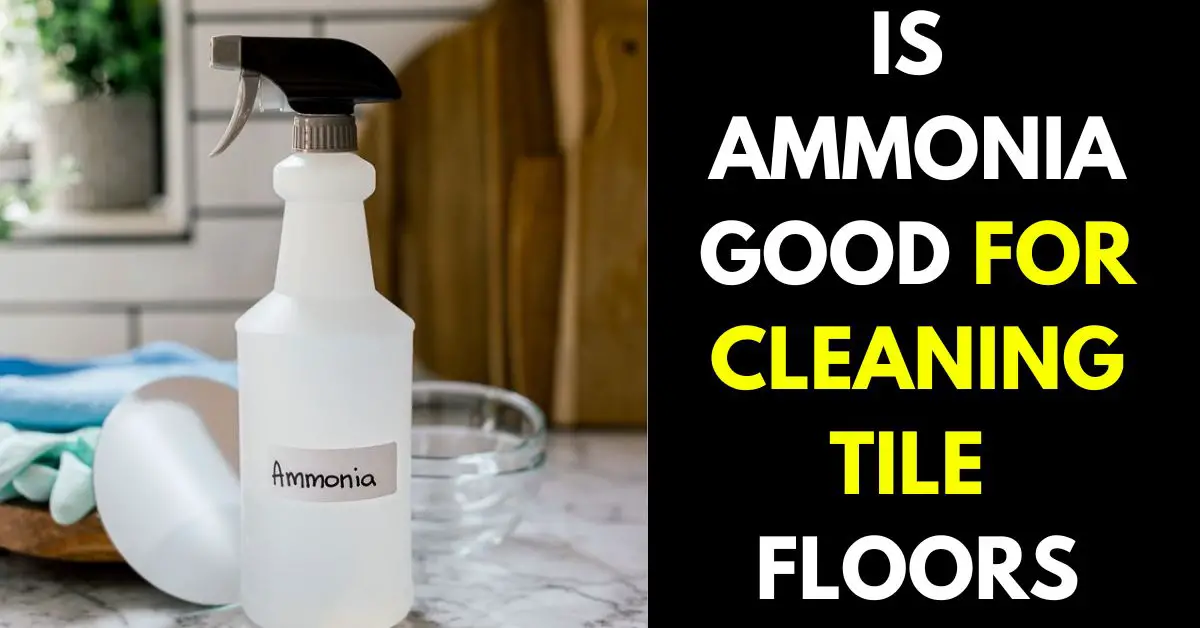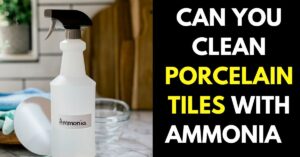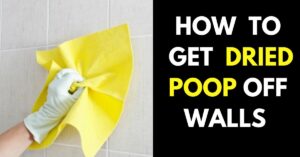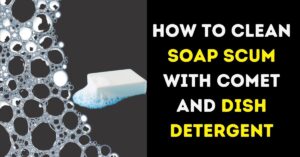
Tiles are a timeless and practical choice for any home renovation project. From kitchen backsplashes to bathroom walls and floors, tiles are durable, and versatile, and come in a variety of shapes and colors. They are also easy to clean, making them an ideal option for high-traffic areas that require regular maintenance. However, over time, tiles can accumulate dirt, grime, and other unsightly stains that can be difficult to remove. That’s why it’s important to know the proper techniques for cleaning tiles and keeping them looking their best.
Ammonia is a common household cleaning agent that has been used for decades to tackle tough stains and grime. When it comes to cleaning tile floors, many homeowners wonder if ammonia is a good solution. While ammonia can be an effective cleaning agent, it’s a good idea to know its properties and how it can affect your tile floors.
Can I Use Ammonia to Clean Tiles?
Ammonia is a powerful cleaning agent that can cause damage to certain types of flooring materials if not used properly. When used on wood, laminate, vinyl, linoleum, and cork, ammonia can cause discoloration, strip away protective finishes, and damage the surface’s sheen.

Despite its potential to cause damage, ammonia is often touted as a safe and eco-friendly cleaning solution, especially when mixed with other natural cleanings agents like vinegar and lemon. However, flooring manufacturers advise against using ammonia on many types of flooring materials due to its potential to cause harm.
Tile is one exception to this rule. While some types of tiles, such as natural stone or marble, may be sensitive to acidic or alkaline cleaning agents like ammonia, most glazed ceramic and porcelain tiles can withstand its cleaning power.
However, dilute the ammonia with water. Do not use undiluted ammonia, as it can be too strong and cause damage to the tiles.
Is Ammonia Good for Cleaning Tile Floors
Applying cleaners like ammonia to tile floors can indeed cause discoloration and damage to the grout over time. The harsh chemicals in ammonia can break down the sealants and coatings on the grout, causing it to become porous and more prone to stains and discoloration. This can make the grout look dirty and discolored, even if the tiles themselves are clean.
Therefore, it is generally not recommended to use ammonia to clean tile floors, particularly if you have colored or porous grout. Instead, it is recommended to use gentle cleaning solutions that are specifically designed for tile and grout cleaning, or natural cleaning solutions like vinegar and baking soda. These cleaners are effective at removing dirt and grime from tile and grout without causing damage or discoloration.
Will Ammonia Damage Tile Floors?
When used correctly, ammonia should not damage most types of tile floors. Ammonia is a powerful cleaning agent that can effectively remove dirt, grime, and stains from tile surfaces.
Use ammonia properly to avoid any potential damage to the tiles.
What Is the Best Way to Clean a Very Dirty Tile Floor?
Cleaning a very dirty tile floor can be a daunting task, but with the right approach, it can be made easier. Here is a step-by-step guide on the best way to clean a very dirty tile floor:
- Sweep or vacuum the floor: Before you begin cleaning, remove any loose dirt and debris from the floor by sweeping or vacuuming it. This will make the cleaning process easier and more effective.
- Prepare a cleaning solution: Fill a bucket with hot water and add a few drops of dish soap. Dish soap is a gentle cleaner that can effectively remove dirt and grime from tile floors without causing any damage. You can also add a cup of white vinegar to the cleaning solution for added cleaning power.
- Mop the floor: Dip a real mop into the cleaning solution and wring it out well. Begin mopping the floor, working in sections, and rinsing the mop frequently in the cleaning solution. Make sure to cover the entire floor surface.
- Clean the grout: If the grout between the tiles is especially dirty, use a mixture of white vinegar and water (1:1 ratio) and an old toothbrush to scrub it clean. The vinegar will help dissolve any dirt and grime, while the toothbrush will help you get into the small spaces between the tiles.
- Rinse the floor: Once you have finished mopping the entire floor, rinse it thoroughly with a clean mop and a fresh bucket of hot water. Make sure to wring out the mop well to remove any excess water.
- Dry the floor: Use a clean, dry mop or a towel to dry the floor completely. This will prevent water spots and help to restore the shine to your tile floor.
How Do You Clean Floors with Ammonia?
To clean floors with ammonia, follow these steps:
- First, remove any loose dirt or debris from the floor with a broom or vacuum cleaner.
- Mix 3/4 cup of plain household ammonia with 1 gallon of warm water in a bucket.
- Dip a mop or sponge into the ammonia solution and wring out any excess liquid.
- Begin mopping the floor with the ammonia solution, working in small sections at a time.
- For heavily soiled areas, allow the solution to sit on the floor for a few minutes before scrubbing with a scrub brush or scouring pad.
- Once you have cleaned the entire floor, allow it to air dry. There is no need to rinse the floor after using the ammonia solution.
Is Bleach or Ammonia Better for Cleaning Floors?
Both bleach and ammonia can be effective for cleaning floors, but they should be used with caution and never mixed together, as the combination can produce toxic fumes.

Bleach is a powerful disinfectant and can be effective at killing germs and bacteria on floors. It can also help to remove stains and brighten the appearance of floors. However, it can be harsh on some types of flooring, such as hardwood or laminate, and can cause discoloration or damage if used improperly.
Ammonia, on the other hand, is a versatile cleaner that can be used on a variety of flooring types, including tile, vinyl, and linoleum. It is particularly effective at cutting through grease and grime and can leave floors looking shiny and clean. However, like bleach, it should be used with caution and never mixed with other cleaning products.
Is Vinegar or Ammonia Better for Tile Floors?
Neither vinegar nor ammonia is ideal for all types of tile floors. Both can damage certain types of tile, such as natural stone, or porous tiles like marble, limestone, and travertine. In general, it’s best to avoid using acidic or alkaline cleaners on these types of tiles, as they can etch or damage the surface.
For most other types of tile floors, both vinegar and ammonia can be effective for cleaning. However, there are some differences between the two:
- Vinegar is a mild acid, which means it can dissolve mineral deposits and soap scum on tile surfaces. It is also effective at removing grime and dirt from tile grout. However, it may not be as effective at cutting through grease or heavy soil.
- Ammonia is an alkaline cleaner, which means it is effective at cutting through grease and oil. It can also be effective at removing soap scum and grime from tile surfaces. However, it can be harsh on some types of tile, and it should never be mixed with other cleaning products, as this can produce toxic fumes.







